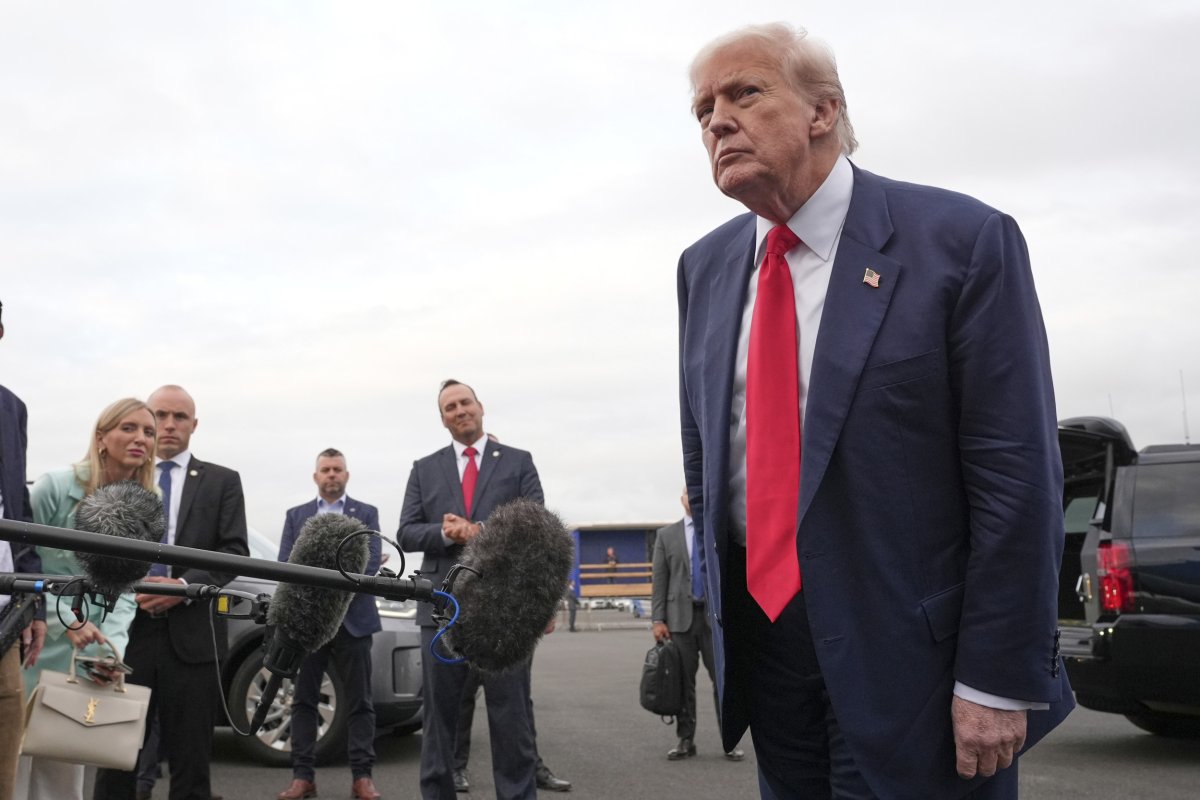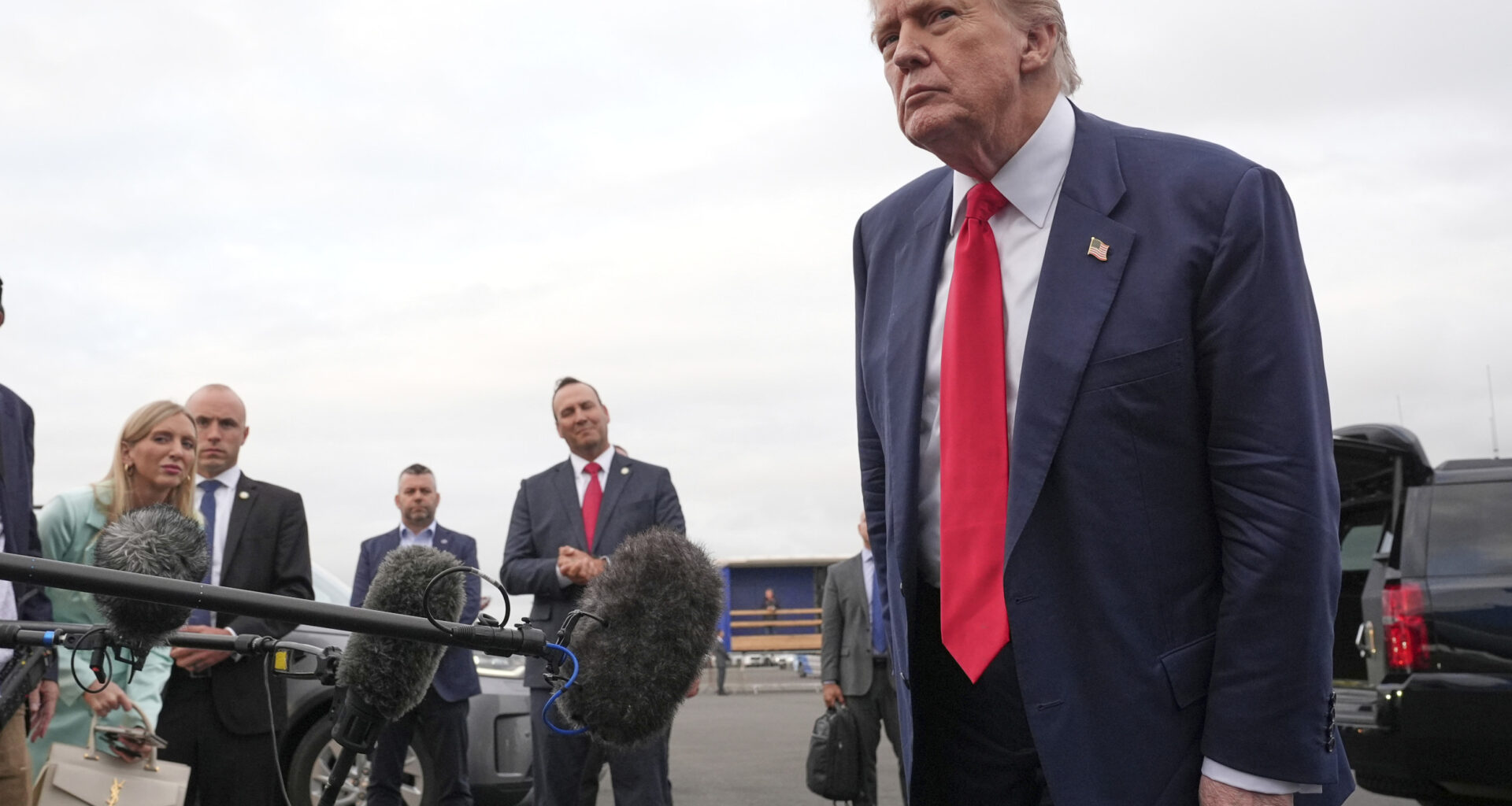The White House issued a defiant statement on Friday after a judge blocked President Donald Trump‘s executive order on birthright citizenship, marking the third time a court has done so since a critical Supreme Court ruling in June.
Why It Matters
Trump’s executive action seeks to prevent children born on U.S. soil from automatically receiving citizenship if neither parent was an American citizen or lawful permanent resident at the time of birth.
The Supreme Court in June blocked judges from issuing nationwide injunctions against Trump’s order, though it left an exception for class-action lawsuits, which multiple plaintiffs subsequently filed.

President Donald Trump faces the media after arriving at Prestwick Airport in Ayrshire, Scotland, on July 25.
President Donald Trump faces the media after arriving at Prestwick Airport in Ayrshire, Scotland, on July 25.
Jacquelyn Martin/AP
What To Know
U.S. District Judge Leo Sorokin ruled on Friday that the nationwide injunction he granted to more than a dozen states who sued over the order is still in effect because “no workable, narrower alternative” would give the plaintiffs relief.
White House spokesperson Abigail Jackson told the Associated Press that the administration expects to be “vindicated on appeal.”
“These courts are misinterpreting the purpose and the text of the 14th Amendment,” Jackson told the news outlet.
Lawyers representing the Trump administration argued in the case that Sorokin should narrow the reach of his earlier ruling granting the plaintiffs a preliminary injunction.
But Sorokin pushed back, taking aim at the Trump administration for failing to explain how a narrower injunction would work in practice.
“That is, they have never addressed what renders a proposal feasible or workable, how the defendant agencies might implement it without imposing material administrative or financial burdens on the plaintiffs, or how it squares with other relevant federal statutes,” Sorokin wrote. “In fact, they have characterized such questions as irrelevant to the task the Court is now undertaking. The defendants’ position in this regard defies both law and logic.”
The New Jersey federal judge also wrote that he has “no doubt the Supreme Court will ultimately settle the question” of whether Trump’s order is constitutional. “But in the meantime, for purposes of this lawsuit at this juncture, the Executive Order is unconstitutional.”
Sorokin’s is the third court to block or uphold a block on Trump’s order since last month’s Supreme Court ruling that carved out an exception for the class-action challenges.
Earlier this week, a U.S. appeals court ruled that Trump’s executive order was unconstitutional and upheld a lower-court decision that blocked its nationwide enforcement.
A federal judge in New Hampshire also blocked the order from going into effect nationwide in a ruling earlier this month. The judge in that case, Joseph LaPlante, paused his decision to give the administration a chance to appeal. But it did not do so, meaning his order went into effect last week.
What People Are Saying
Sorokin said in his 23-page ruling on Friday: “Despite the defendants’ chosen path, the Court — aided substantially by the plaintiffs’ meticulous factual and legal submissions — undertook the review required of it by [June’s Supreme Court ruling] and considered anew whether its original order swept too broadly.”
He added: “After careful consideration of the law and the facts, the Court answers that question in the negative.”
New Jersey Attorney General Matthew Platkin, who led the case before Sorokin, said in a statement: “American-born babies are American, just as they have been at every other time in our Nation’s history. The President cannot change that legal rule with the stroke of a pen.”
What Happens Next
The case will almost certainly make its way back up to the Supreme Court, which has a 6-3 conservative majority and has handed the Trump administration more than a dozen critical victories so far this year.
